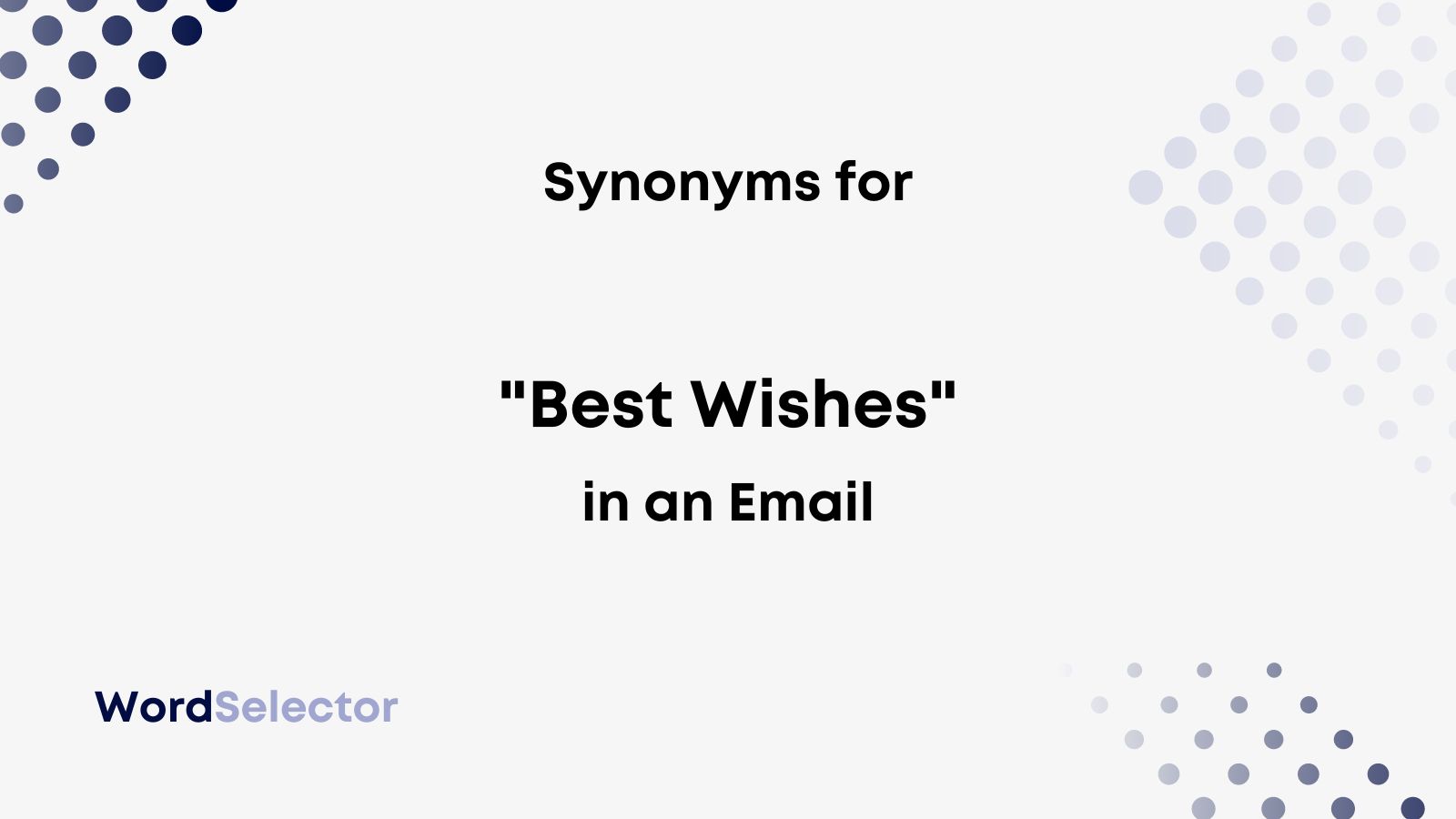Are you trying to figure out how to say “best wishes” in an email?
Maybe you’re worried that the phrase is overused and better email closers are out there.
Well, you’ve come to the right place to learn more.
This article will explain how to say “best wishes” to your boss or colleagues, depending on when you need to use it.
Best Wishes Synonyms
- Wishing you well
- Sending you my best
- Regards
- Kind regards
- Cordially
- Yours truly
- Best regards
- Warmest regards
- Yours sincerely
- Fond regards
- All the best
- Warmest wishes
- Yours in good faith
- Wishing you the best
- With heartfelt regards
KEY TAKEAWAYS
- “Best wishes” is correct and works well as an email closer when you already know the recipient well.
- Try “wishing you well” as a formal synonym if you think that will suit your email’s tone better.
- “Sending you my best” is great as a more informal alternative if that seems like something you would write.
Keep reading to learn how to say “best wishes” to a colleague or boss in your company. We’ve touched on the best formal and informal alternatives to give you a better understanding of them.
Alternatively, you can skip ahead to the final heading. There, you will learn whether it’s correct to say “best wishes.” So, you might want to look over it now if that’s more applicable to you.
Wishing You Well (Formal)
You can start with “wishing you well” as another way to say “best wishes.”
This is a great way to be professional and respectful when someone might be leaving a company.
Generally, you can include something like this in the last email you send to someone. It’s similar to saying “best wishes for the future” when someone has found a new job.
So, you might want to use this when a colleague is leaving the company. It can also work when emailing your boss if it’s going to be one of the last times you speak to them.
These email samples will also help you to understand it a bit better:
Dear Ms. Whitehall,
It’s going to be strange when you finally leave the company.
However, I know this is the right call for you, and I’m sure it’ll be worth it.
Wishing you well,
Maxine Mortimer
Dear Chase,
This might be the last project we get to work on together.
Let’s make sure it’s the best one we’ve done in a long time.
Wishing you well,
Adam Lambert
Sending You My Best (Informal)
You can also use “sending you my best.” This time, it’s a bit more informal, making it a good choice when writing to colleagues or friends.
For the most part, it’s a polite and sincere way to end an email.
So, you can use something like this when someone gets a new job. It shows that you hope they get a lot out of their future, and you’ll miss their presence at your company.
Generally, this will make your colleague feel quite good. After all, it shows you care about them and want them to make the most of what’s to come.
You may want to review these email samples to learn a bit more about it:
Hey Barry,
I hope this is the right move for you because I know how long you’ve wanted to leave.
If there’s anything else I can do for you, please don’t hesitate to reach out.
Sending you my best,
Sam Tate
Hey Pam,
Today is the big day! Are you excited about finally leaving the company?
Let me know when you’re settled into your new job, as I’d love to meet with you.
Sending you my best,
Jim Perkins
Is It Correct to Say “Best Wishes”?
It is correct to say “best wishes.”
It’s a very common phrase to use at the end of an email.
For the most part, it’s professional, so you can use it in most business contexts.
It works as a general formal email closer that allows you to see someone off.
You can refer to the following email sample to learn a bit more about it if you’re still unsure:
Dear Michael,
I’m glad you found something that works better for your schedule.
I hope this will be everything you’ve been looking for.
Best wishes,
Sean Ryan
However, if you want to extend the phrase to something like these:
- Best wishes for the holidays
- Best wishes for the future
We recommend doing so in more informal situations. Stick with “best wishes” on its own to maintain a formal tone.
Don’t go without bookmarking this page, though! After all, you might have to come back here in the future to give yourself ideas for other ways to say “best wishes.”

